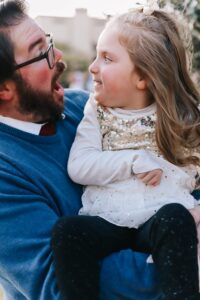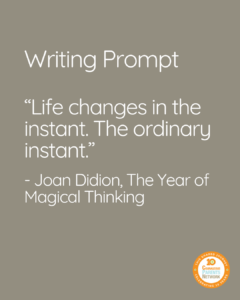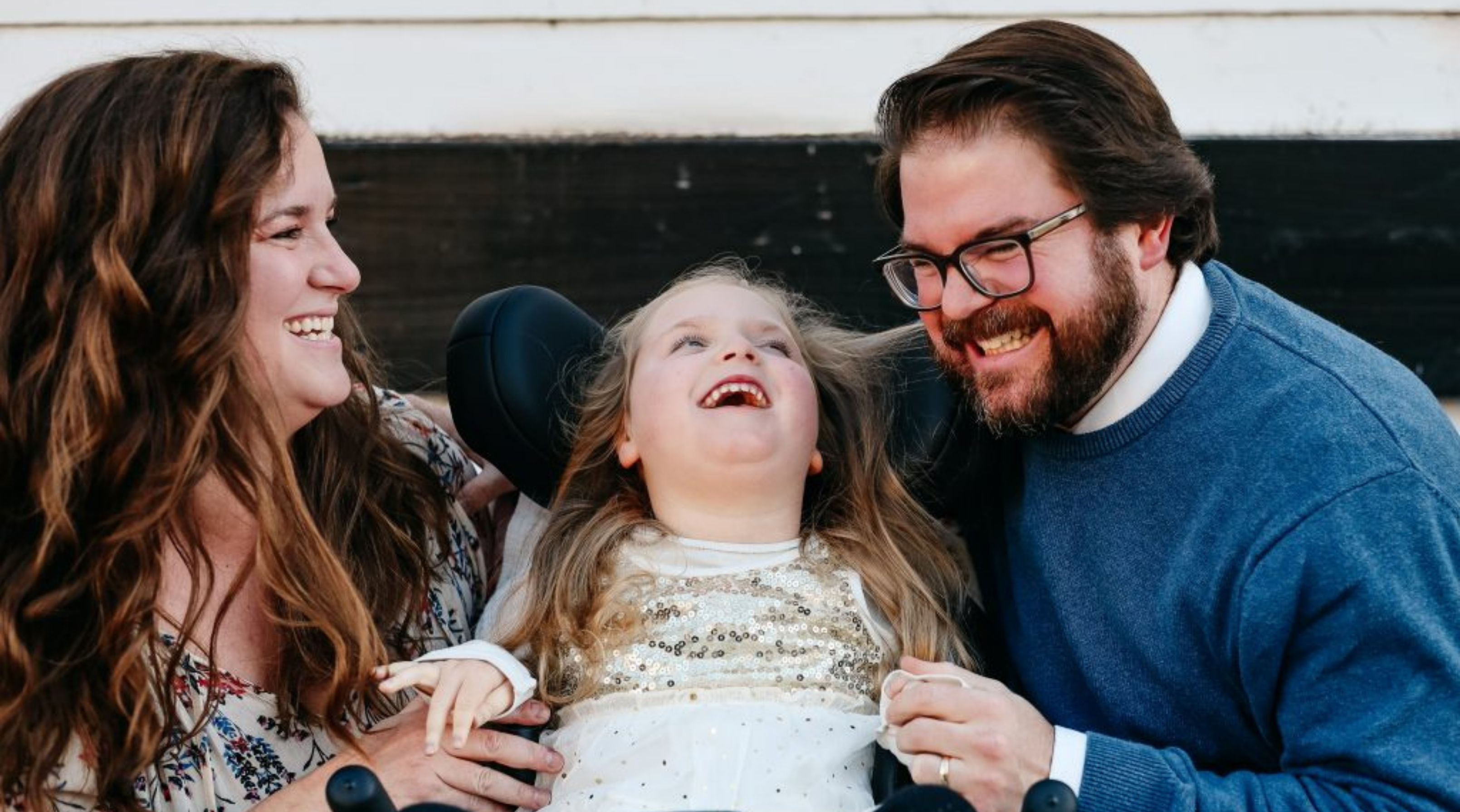The morning light, soft and diffused, bathed the nursery walls in gentle hues. My daughter, a few months old, lay on her back, her eyes locked on the mobile spinning above. Her clumsy hands swiped at the air. Then, it struck. A subtle twitch. Her head jerked forward, a tiny nod, her limbs tensing. I dismissed it as a baby startle, a quirk of her growing body. But then, a quiver. A tightening. Another. And another. These were no flukes—a rapid, relentless clenching squeezed the breath from me. Her head dipped again; her small frame locked in a silent, terrifying dance.
In that ordinary instant, a ritual we’d repeated countless times, time split. The soft light hardened, the quiet room rang hollow, and dread coiled in my gut. What was this? What gripped my child? Could this be… more? Fears, shapeless yet piercing, stabbed at my fraying mind.
Life twists on such moments, doesn’t it? A single breath—a glance—upends everything. Time, once a steady stream, shatters into jagged pieces, each reflecting a fractured reality. How do we grasp this? How do we endure when an unremarkable second carves a new existence? I offer no answers, only questions, lingering in the space where certainty crumbles. Here, time splinters, grief hushes, and the caregiver’s burden dawns—a solitary watch over a world forever changed.
 After that moment, time warped. Were they days? Weeks? For a place with so many clocks, time doesn’t seem to exist in hospitals and clinics. The waiting rooms reeked of sterile air, white coats drifting past. Each second crawled—a blood draw, a consultation, an EEG. My daughter’s spasms, those brief, eerie twitches, were trapped on video, replayed, picked apart. Doctors spoke in crisp bursts, their words sharp yet slippery, meaning evading me. Time stalled, a stagnant pool mirroring a warped present and an uncertain future.
After that moment, time warped. Were they days? Weeks? For a place with so many clocks, time doesn’t seem to exist in hospitals and clinics. The waiting rooms reeked of sterile air, white coats drifting past. Each second crawled—a blood draw, a consultation, an EEG. My daughter’s spasms, those brief, eerie twitches, were trapped on video, replayed, picked apart. Doctors spoke in crisp bursts, their words sharp yet slippery, meaning evading me. Time stalled, a stagnant pool mirroring a warped present and an uncertain future.
Then, the years—or what felt like them—blurred. Therapies, medications, whispered hopes dashed against unyielding reality. Nights snapped apart with anxious wakings; days rolled into cycles of appointments, new drugs, fresh side effects—a tightrope walk between relief and ruin. Small wins faded under looming setbacks; milestones twisted into shadows of what might have been. Birthdays, seasons—slipping like water through a cracked cup, lost forever.
In crisis, time defies measure. A single twitch swells, flooding the mind with dread, while years shrink to a fleeting echo. For us, teetering on this edge, the ordinary haunts: feeding, bathing, holding—each a fragile stand against the unknown. Every laugh, every cry, stings with what was and what might be.
You see other parents—at the park, in the store. Their kids sprint, climb, chatter endlessly. They map out birthday parties, school plays, a future unfurling. You watch, and grief claws at you—not for what’s gone, but for what never will be. A simple life, snatched by fate’s twist.
This grief creeps in early, like a morning (mourning?) fog curling into your days. You study your daughter, tracing every fleeting smile, knowing some will never return—at least not as you dreamed. Guilt gnaws: if you grieve, are you ungrateful? If you mourn tomorrow, do you cheapen today? You love her fiercely and desperately, cherishing each touch. Yet the ache lingers, a quiet echo of what might have been.
This grief is a testament, not a betrayal. A testament to the depth of a love that stretches beyond the present, beyond the limitations of what is. It is a love that mourns the absence of a future that was, in its own way, already a part of you. You are, after all, made to care. And to care is to feel the sharp edge of loss, even before the final parting.
It’s not the hospital’s chaos that undoes you. It’s the quiet. Folding laundry, the soft fabric evoking tiny limbs. Stirring tea, the steam a fleeting balm. Sunlight spills through the kitchen window, warm and gold. A song hums on the radio—then stabs, too heavy to bear. And then, it hits you.
No crisis looms, no doctor drones on. You’re just living—or trying to. But grief ignores your rhythm, striking like an uninvited shadow. A tiny shirt whispers lost dreams. A spoon’s clink rings with unanswerable questions. Her shampoo’s scent clings. Her hand nestles in yours—all a fragile tether. A memory flashes from the beforetime, before fear, before doubt, when the ordinary wasn’t laden with dread. These moments are sacred. And unbearable. The mundane betrays you, hiding sorrow in its folds. The ordinary instant tests you—a monument to what was and won’t be.
You try to explain—to friends, family, coworkers. You weave words into sentences, stories. But they don’t grasp it. How could they? They see a child, a parent, a routine life. Beneath that, lurks a fear they can’t touch, a constant hum of dread thrumming through you. Every breath, every smile, weighs heavy with what they’ll never know.
The world spins on. Sun rises, seasons shift, plans bloom—vacations, promotions, tomorrows. Their lives surge forward while yours staggers, snagged between appointments, therapies, rare slivers of calm. You’re not alone in body, perhaps, but in spirit—an exile in a fractured realm. Your past’s upheavals bleed into today’s ordinary, a rift no story can span.
‘Why?’ gnaws at you, a relentless echo in quiet corners. Why her? Why this jagged path? You scour books, conversations, solitary nights for answers, craving a thread of order in the tangle of your days. But silence stares back, vast and unyielding, mocking your pleas. The sheer randomness—the cruel unfairness—threatens to swallow you whole.
So you forge meaning, stacking it brick by brittle brick. It glows in small triumphs—her fleeting grin, a steady day—moments of raw connection. You craft a tale of resilience, devotion, an anchor against the storm. Is it real? Or just a shield, a way to press on when despair tugs? Does meaning dwell in crisis, or do we wrest it from the void to survive? The questions hover, unanswered, a tightrope between surrender and fragile hope.
How Do We Know When Life Has Changed?
In one of those most ordinary instants, I was scrolling social media and came across a post by the Courageous Parents Network. It was a simple post with a splendid quote from Joan Didion, “Life changes in the instant. The ordinary instant,” followed by a caption prompting me to write about a time my life changed in an instant. And just like that, this blog post was born. But before I wrote it all out, my initial thoughts were as follows:
If life changes in the instant, and if ordinary instants are precisely those that don’t stand out, how do we know which  moments will change our life? And how would we even know if our life has changed at all? Do we only see the shift later, tracing the crack it left? Or do we live as if every mundane second brims with potential to reshape us? We long for stability—routines, plans, a tomorrow like yesterday was. But perhaps the answer is not in chasing the moments that change us, in searching for the grand, dramatic shifts, or even in the comfort of predictability. Perhaps it lies in living fully within the moments that don’t seem to matter at all. In noticing the small, subtle details of our lives, always. To the way the light falls across your child’s face. The sound of their breath. The warmth of their hand in yours. This isn’t a call to compartmentalize through hypervigilance, it’s a call to integrate your ordinary instants and live.
moments will change our life? And how would we even know if our life has changed at all? Do we only see the shift later, tracing the crack it left? Or do we live as if every mundane second brims with potential to reshape us? We long for stability—routines, plans, a tomorrow like yesterday was. But perhaps the answer is not in chasing the moments that change us, in searching for the grand, dramatic shifts, or even in the comfort of predictability. Perhaps it lies in living fully within the moments that don’t seem to matter at all. In noticing the small, subtle details of our lives, always. To the way the light falls across your child’s face. The sound of their breath. The warmth of their hand in yours. This isn’t a call to compartmentalize through hypervigilance, it’s a call to integrate your ordinary instants and live.
Live, not only in the gasps of catastrophes, or in the pages of research articles, or on brightly colored awareness days, but in the ordinary. Because in a life where time is fractured and grief is a constant companion, the ordinary becomes extraordinary. Because one day, these moments, these seemingly insignificant instants, may be the ones that mattered most.
These ordinary instants are the ones that change your life.
Stephen Hager goes by his second middle name (he has three), Bud, because it’s easier to remember and baristas never misspell it. Along with his wife he is a caregiver for their 8-year-old daughter, Emma, who has pachygyria, a rare neurological disorder. He believes in taking an active approach to advocating for his child and others like her. To this end, he sits on various advisory councils at Children Hospital of Orange County (CHOC), volunteers on consulting and directing boards for various non-profit centers and lends his writing skills where he can. Experiencing a lack of support for parents of medically complex children, Bud founded a support group through CHOC focusing on parent-to-parent interaction. He is also a professor of psychology and has a small private psychotherapy practice.
